Moving to Ireland from the USA: Everything you need to know
Moving to Ireland from the US? This guide covers all the essential information for relocating to Finland as an American, including tips and insights.
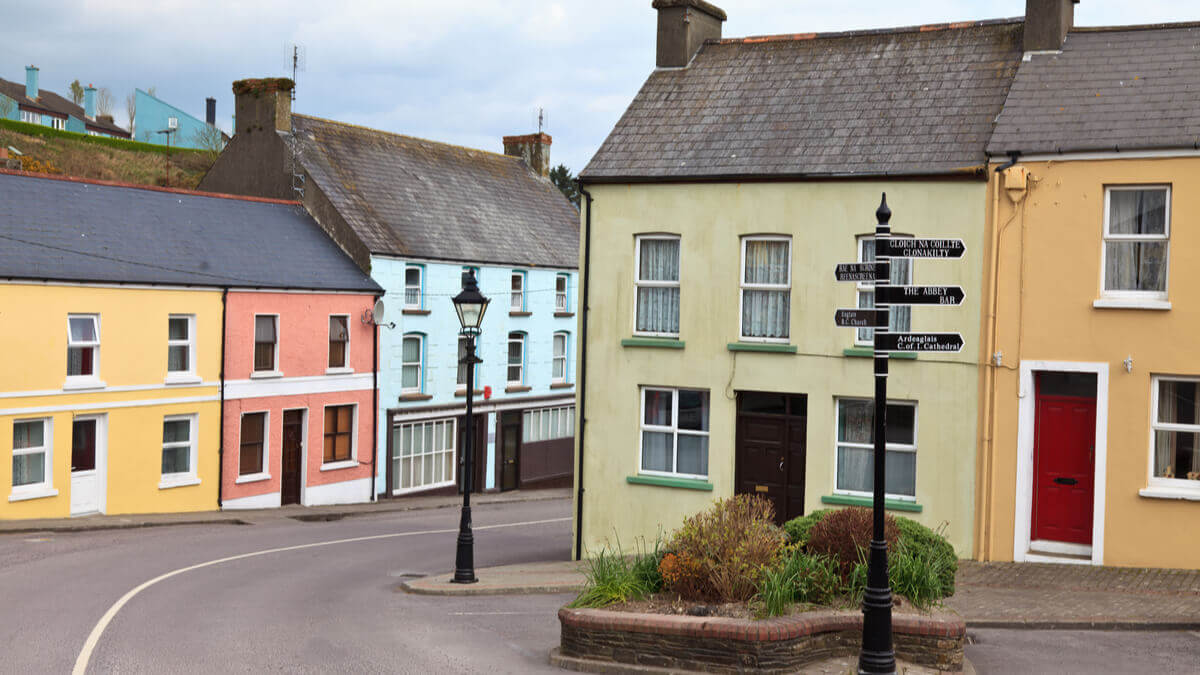
Buying property in Ireland is a dream for many Americans - whether that’s as a home for you and your family, a place to vacation, or a long term investment.
This guide to buying a house in Ireland covers all the details including how to find a suitable property, choosing estate agents and the costs of buying.
We’ll also introduce Wise’s low-cost international payments as a great way to cut the costs of currency conversion when you’re buying a home in Ireland from abroad.
The good news is that buying property in Ireland from the USA is relatively straightforward - and buying real estate in Ireland can also be a sound investment.
Buying a property is safe enough as long as you understand the local system - whether you’ll be living in Ireland or not - and legal fees, stamp duty, property and capital gains taxes in Ireland are fairly reasonable too.
Like most of the world, the Irish property market suffered greatly during the economic crisis from 2007-2008 onwards, hitting record lows at the start of 2013.
However, high demand and a relatively low supply of housing stock has seen the market rebound well after this low point¹.
Since 2013, the average purchase price for real estate in Ireland has risen almost 90%, with extremely strong performance in some areas including the capital, Dublin.
The outlook for 2022 remains fairly optimistic, despite pressures due to global political uncertainties and the ongoing economic impact of the pandemic. While in many countries the real estate market may cool in the light of increased inflation, analysts suggest that the lack of ready supply of housing in Ireland may keep prices buoyant.
If you plan to buy property in Ireland, it’s good to know you can do so as a foreigner or non-resident.
There’s no legal reason why you can’t buy a home in Ireland as an American, whether that’s as an investment, a vacation place or an investment. However, it’s important to realize that buying a home in Ireland won’t mean that living in Ireland is automatically possible².
You’ll still need to get a suitable visa or permit, depending on what you expect to do in Ireland, and the length of time you’re likely to stay.
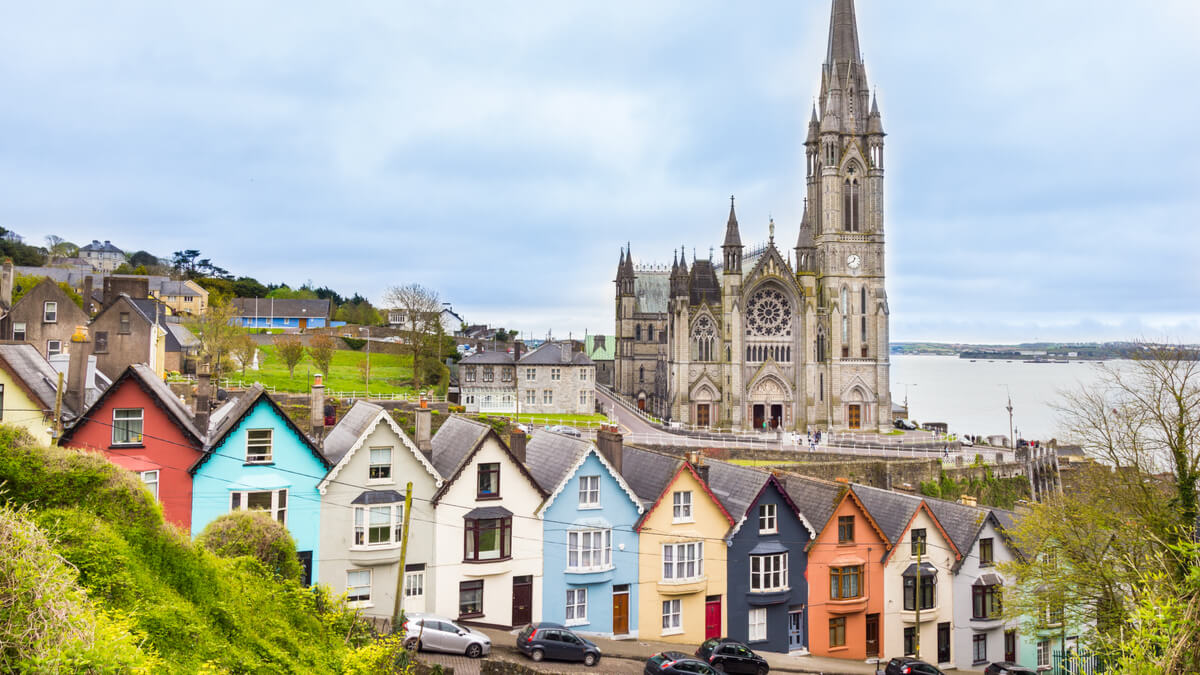
Buying a property in Ireland is fairly similar to buying a place in the US, but you’ll definitely want a local team on hand, including a property lawyer or solicitor, and a reputable, registered real estate agent. Here are the broad steps which usually apply when you buy a property in Ireland.
Before you even start to look for a property, you’ll need to have an outline of a budget. We’ll look at the costs of buying a home in Ireland a little later, but setting a budget will help guide your choice of location and property type. If you intend to get a mortgage to fund the property purchase, you can get an in principle approval lined up, so you know how much a bank will be willing to give you before you start to view places to buy.
It’s now time to start looking for the property of your dreams. Most property searches start out online with some of the many Irish real estate websites which showcase properties from a range of agents. Once you’ve narrowed down your search, you’ll want to view places - make sure that the real estate agents representing the properties are registered properly³, to be on the safe side.
At this stage, it’s also a smart idea to get a solicitor lined up to help you with the legal side of the property purchase. You can search for local solicitors using the Irish Law Society’s search tool⁴, get personal recommendations, or look online for reviews of different solicitors in your chosen location.
Once you’ve found the right place for you, you’ll need to make an offer and have the seller agree. This process is usually carried out via an estate agent, so you’ll also be able to get some guidance on the costs and the price the buyer is looking for. It’s well worth looking in the Property Price Register⁵ to see comparable property prices in the area when you’re deciding how much to pay.
Once the seller agrees the price, you’ll pay a booking deposit to the estate agent, which may be a fixed amount, or a percentage of the overall cost of the property.
The booking deposit usually means the property will be removed from the market for a few weeks to give you and your solicitor the time to carry out required legal and due diligence checks, and prepare contracts. You’ll be able to ask for building energy efficiency information to see how much running the home will cost, and it’s also a good idea to commission a survey from a registered chartered surveyor.
Your solicitor will also have a range of checks to carry out, including checking the legal ownership of the property and completing searches to make sure there are no issues you could inherit along with the property. Once everything gets the all clear, your solicitor will draw up the sale contract for both you and the seller to sign.
All contracts must be signed to complete the sale, and then you’ll need to pay stamp duty, legal fees and the outstanding property cost. Your solicitor will register the sale and the property is yours.
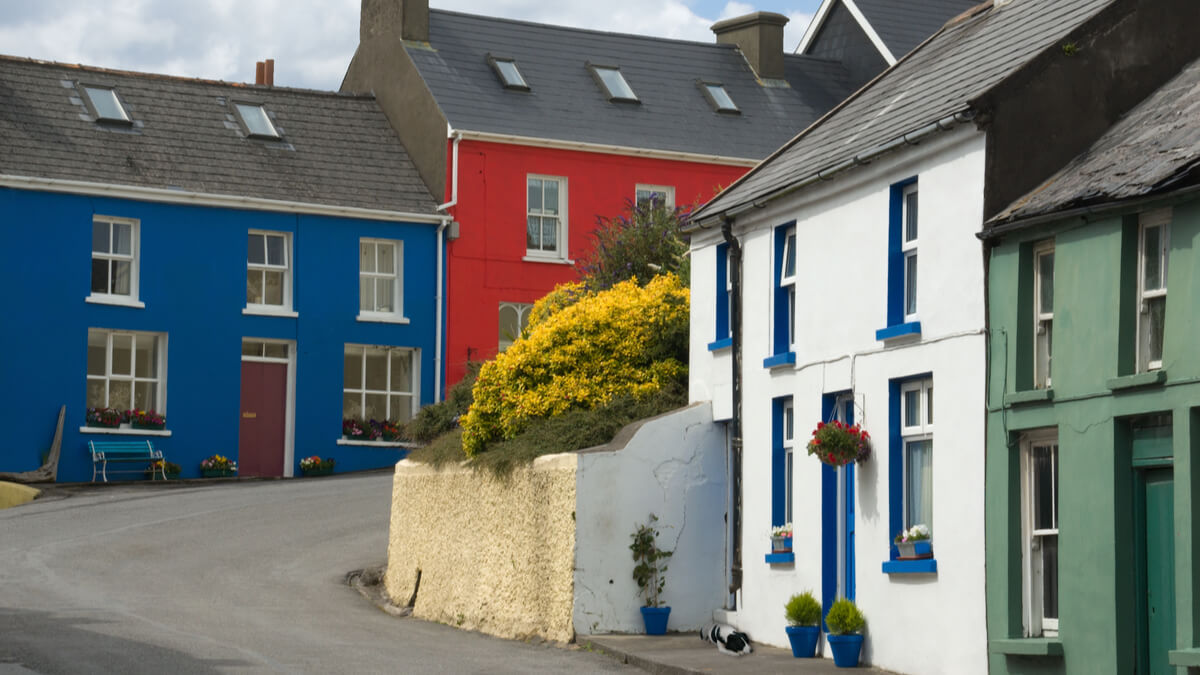
An Irish newspaper recently posed the question: How much do you need to earn to buy a house in Ireland?
The data it found showed the average price of a home in Ireland at the end of Q1 2022 was 295,000 EUR⁶ - about 305,000 USD. While average prices around the country vary dramatically, this would mean that you’d probably need a salary of about 75,000 EUR (78,000 USD) - plus a deposit in excess of 29,000 EUR (30,000 USD) to get a mortgage for an average property, assuming a standard mortgage multiplier of 3.5x salary.
However, importantly, the average house price around the country does vary significantly. The same article gave regional average prices including the cheapest place to buy land in Ireland in the county of Longford at 115,000 EUR, up to the most costly country - Wickford at 355,000 EUR on average. Let’s take a look at prices per square foot in a few major cities to give a taste for the cost of buying property in Ireland.
| Location | Price per square foot - city center (USD) | Price per square foot - outside of city center (USD) |
|---|---|---|
| Dublin | 750.20 | 437 |
| Cork | 332.42 | 242.01 |
| Galway | 335.71 | 293.15 |
| Limerick | 213.76 | 171.43 |
*Pricing correct at time of research - 13th May 2022 - taken from Numbeo.com⁷
When you set your budget to buy a property in Ireland, don’t forget you’ll also need to pay some extra legal costs and fees - here’s what to consider.
| Tax or fee type | Average cost |
|---|---|
| Stamp duty | 1% - 2% |
| Legal fees | 1% - 1.5% (+VAT) |
| Registration fees | 0.25% - 0.75% |
| Estate agent fees | 1% - 3.5% (+VAT) |
| 💡 If you’re paying any of your costs from overseas, don’t waste money on expensive bank fees - check out Wise's low-cost international payments instead. You’ll get low, transparent transfer fees and the real mid-market exchange rate, which can mean you save up to 6x compared to your normal bank. |
|---|
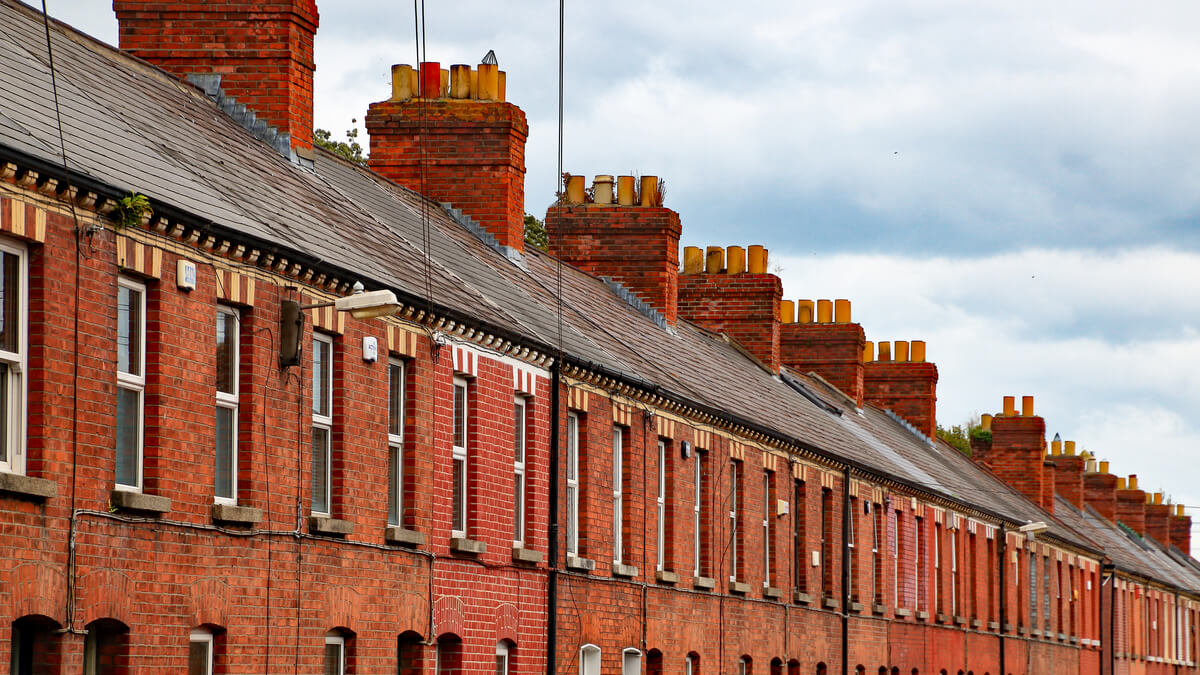
As an American buying property in Ireland, it’s natural to feel a bit wary, and to worry a bit about how to stay safe when negotiating property transactions. In reality, buying a home in Ireland isn’t that much different to getting a new place to live in the US - but taking a few common sense steps to stay safe is always a good plan. Here are a few things to think about.
You’ll find a broad range of property types available in Ireland - but the exact details of property available will depend on where you’re looking. While large city centers will have modern buildings, including condos and apartments, smaller towns are more likely to have terraced, detached and semi-detached properties. One important consideration is whether you want to buy freehold or leasehold. Freehold properties are bought to include the land they’re built on - whereas leasehold have a fixed long term lease agreement, often meaning you’ll pay ground rental or management fees for the upkeep of the land.
One interesting note about Irish real estate is that there’s a relatively high proportion of historic housing stock, including properties from the 1700s onwards. Georgian homes in Dublin, for example, and Victorian era cottages in towns, are commonly available. These properties are beautiful but may fall under historical protection rules depending on the specific home and the area - make sure you understand any development requirements or restrictions if you’re tempted to buy one.
Construction standards of new properties in Ireland will usually be similar to in the US. While you’ll definitely want to walk through and complete what’s known as snagging - checking over for any minor issues in the condition you want the builders to look at - there are unlikely to be major issues. Even if there are structural issues you discover later, most new build homes in Ireland have a 10 year HomeBond which covers major issues and obliges the builders to step in to fix problems.
If you’re buying an older property, of course, none of this will matter. You’ll need to get your own survey completed to make sure there aren’t any problems with the home - especially if you’re buying a historic property, which could hide all manner of issues. There’s no legal requirement to get a survey of the property before you buy - but you could certainly save yourself worry, cost and hassle down the line if you do.
In most cases, buying a property in Ireland is no more risky than buying in the US. It’s pretty much essential to have a local solicitor who understands the Irish property market and law, and you’ll also want to make sure your property is being represented by a registered realtor to stay on the safe side. However, beyond this, staying safe is more a matter of taking common sense steps like carrying out all due diligence checks, getting a survey, and learning as much as possible about property prices in your preferred area, so you don’t end up paying over the odds.
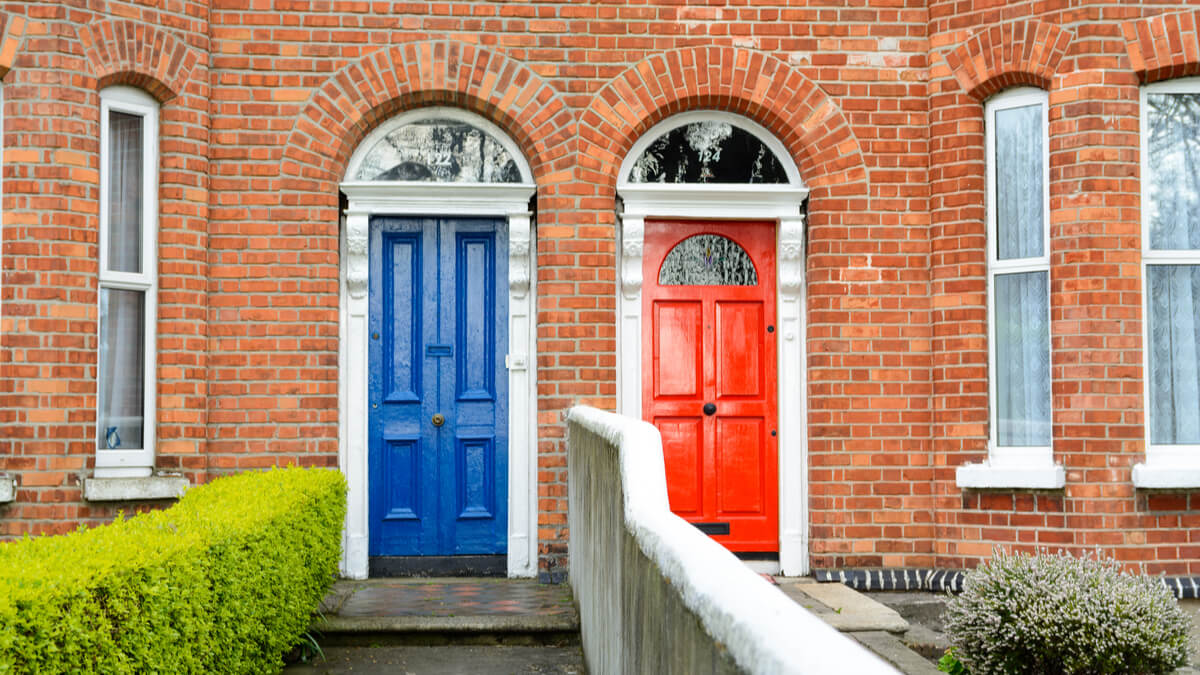
Hopefully, you're now getting excited about the prospect of buying a property in Ireland. Here are a few of the biggest cities in Ireland to get your research started - and a little bit about what’s great about them.
Ireland’s capital is an obvious place to start your search, and one of the most popular places with Americans looking to buy property in Ireland for work. It’s Ireland’s largest city - and comes with some of the highest house prices too - but that does have the benefit of offering a really broad range of districts and neighborhoods, as well as property type. If you’re looking to be in the heart of everything, there are city center apartments and properties to be had - but you can also choose to be by the seaside in an area like Seapoint or Killiney, or in a well-heeled suburb like Ballsbridge if that’s your thing.
Cork is the second-largest city in Ireland and another popular destination for expats moving to Ireland to live and work. House prices in Cork are significantly lower than in Dublin, but you’ll still have a good choice of locations and property types. City center apartments are again an option, or you could look to the south of the city for more of a student vibe. Alternatively, if you’ve fallen in love with Ireland and want to get a little bit of history, check out the Victorian quarter or Shandon in the north of the city.
Galway is both a county and a city, on the west coast of Ireland, offering a more laid back lifestyle with lower prices than Dublin or Cork. Galway city isn’t huge, but it has good infrastructure and plenty of facilities, including shopping and dining options. In fact, there are great eating opportunities, particularly if you love seafood, and even a couple of Michelin-star-holding restaurants to choose from.
In our comparison of property prices, Limerick came in the cheapest - the price per square foot to buy in Dublin is close to 4x that of Limerick. A vibrant city with great housing options, the lower cost of living also means that commute times are typically lower than in other major cities as people can afford to live nearer to where they work. You’re never far from things to do and can easily escape the city to get out into the beautiful surrounding countryside, too - making this a perfect little slice of Ireland.
No matter where you end up buying a property in Ireland, you’re in for an adventure. With welcoming people, a fun culture and beautiful natural scenery to enjoy, you’ll never be short of something to do.
Use this guide to buying property in Ireland as a starting point to find your new home - and don't forget that you can save on your international transfer costs if you choose a Wise low cost international payment instead of sending money with your regular bank. Good luck!
All sources checked on 13 May 2022
*Please see terms of use and product availability for your region or visit Wise fees and pricing for the most up to date pricing and fee information.
This publication is provided for general information purposes and does not constitute legal, tax or other professional advice from Wise Payments Limited or its subsidiaries and its affiliates, and it is not intended as a substitute for obtaining advice from a financial advisor or any other professional.
We make no representations, warranties or guarantees, whether expressed or implied, that the content in the publication is accurate, complete or up to date.

Moving to Ireland from the US? This guide covers all the essential information for relocating to Finland as an American, including tips and insights.

Interested in buying land in Ireland? Here’s everything you need to know about buying a plot of land abroad as an American.
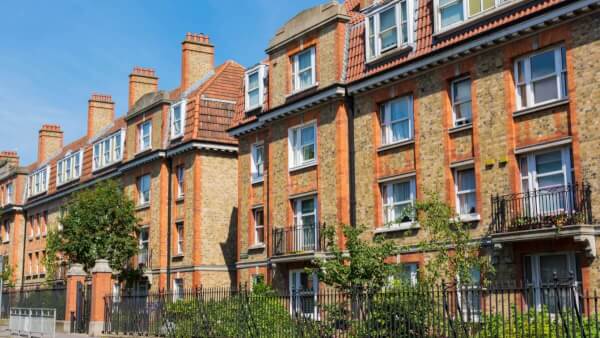
Thinking about moving to Ireland? Find out what you need to know about renting in Ireland in this guide.

Ireland is known for its love of food and drink, picturesque countryside and bustling cities. Read on to find out the pros and cons of living in Ireland.

Child maintenance in Ireland is complicated — read on to learn what you need to know.

Having a baby is a priceless experience, but if you’re a foreigner in a different country, it can be daunting to navigate new healthcare systems and impending...